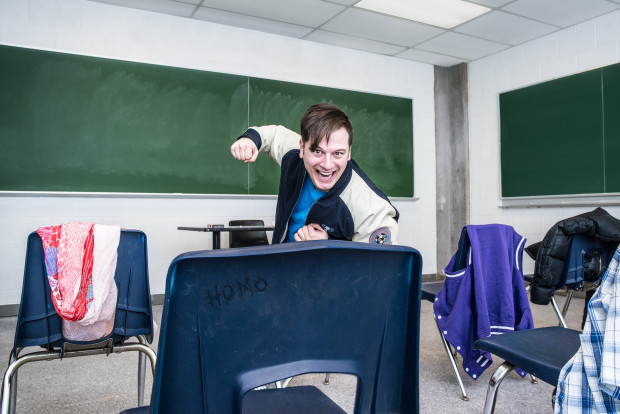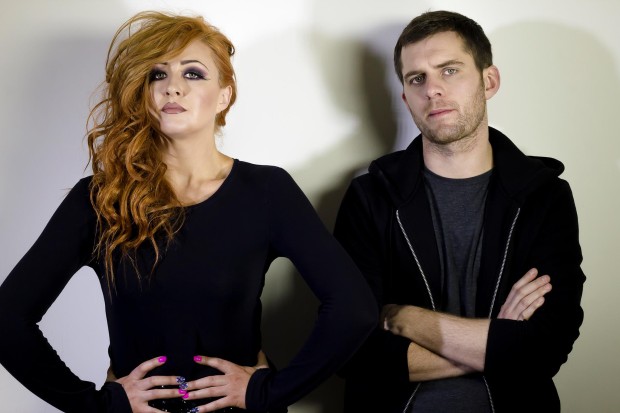Returning to the International Dublin Gay Theatre Festival after a four-year hiatus, Canadian playwright and performer Rob Salerno provokes this year’s audience with his one-man show First Day Back. The production marks Salerno’s second with the festival, making its premiere in the basement of Dublin’s Outhouse, where the leading man conjures a high-school classroom for a set which includes both stage and house. Featuring an array of characters all embodied by Salerno, the drama captures a group-counseling session held in response to the suicide of one of the school’s students. Where killer is victim and victim killer, Salerno depicts adolescence playing hot potato with blame and guilt. Whether playing empathetic art teacher or whimsically crestfallen school president, Salerno’s range of talents lends credence to the conversation’s teenage nature, from the awkward confession of opinion, across stymied emotions, to frustrated moral confusion.
The setup of Salerno’s opus finds strength in its fluid qualities. In a space which otherwise resembles a classic proscenium v. house scenario, Salerno darts in and out of seats among his audience to capture a more rounded classroom environment. The sparsely scattered cardigans, school posters, and headphones subtly realise the vision, as well. Manifesting an entire crew of students and educator, Salerno runs the risk of caricaturing the parts in efforts to differentiate them, but he effectively tempers their more obvious qualities without losing the clear picture of who each individual is. Together, they tackle bullying and teen insecurity and how they process it through a conversation which rises and falls beautifully. At times, Salerno’s text affords these youths a bit too much self-awareness than is believable, and we see his own analysis of their psyches. This commentary no doubt stems from Salerno’s reflection of his own days in a Catholic all-male high school, where he recalls bullying as the currency of the social pecking order, and where you fell simply determined whom you bullied and who bullied you. Still, what remains is a credible picture of how one gay teen’s suicide has shaken an entire community into reflection. Now devoting the efforts of his career to both journalism and the stage, Salerno seems to value this practice of theatre as reflective dialogue, and he thoughtfully uses his work to develop a dialogue which dissects ostracism and its roots in fear.
Given the current climate in Ireland, where children were pushed to the forefront of the marriage-equality debate, perhaps Salerno’s work bears an important reminder of what messages are being heard by some children who already feel outside of the norm. Joe Madsen






